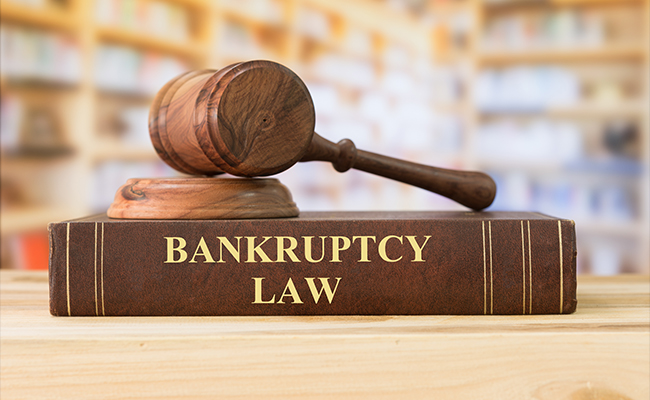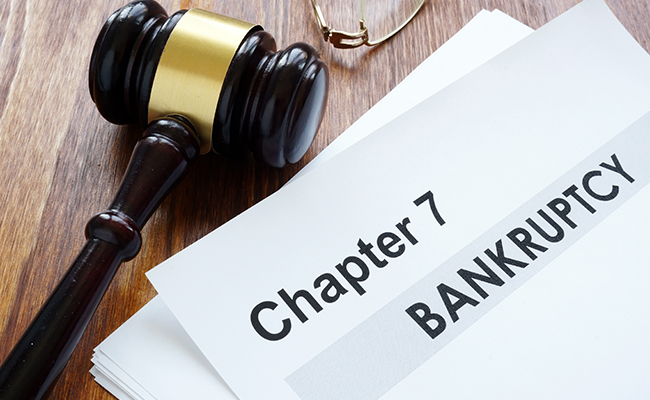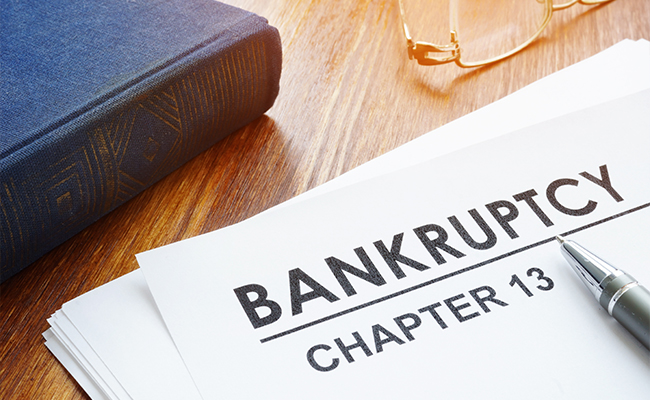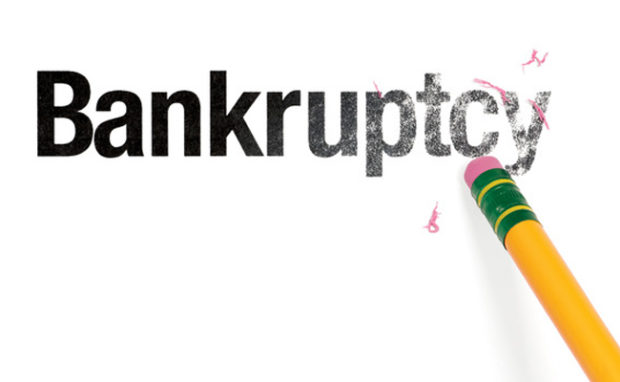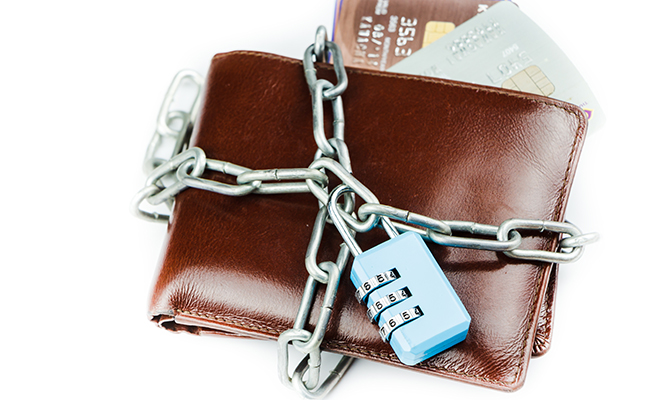How Do I Avoid Bankruptcy?
Avoiding bankruptcy? You’re not the only one, so stay calm. Bankruptcy can be a daunting term. However, it’s essential to recognize that bankruptcy is not the end. Rather, it is a legal process designed to provide individuals and businesses with an opportunity for financial relief and a fresh start.
In this article, we will discuss the consequences, different ways of avoiding bankruptcy, and the potential of a bankruptcy alternative. We cannot avoid a thing we don’t know, so let’s get to the root of bankruptcy.
Ready For a Quick Quiz?
What Is Bankruptcy?
It is the procedure within the law’s confines that allows the debtor or debtors (if it includes a body or company) to appeal to a court for partial or total relief from their credit card debt due to certain circumstances beyond the debtor’s control.
By nature, bankruptcy is often filed by the debtor and imposed by the court of law if the case favors the debtor.
Bankruptcy and insolvency are two different terms, even though many use them interchangeably. Insolvency is the state of being unable to make payments towards your debt, while this is an action taken to relieve you of your debt. An insolvent debtor is not necessarily bankrupt, but a debtor who files bankruptcy is said to be insolvent.
Types of Bankruptcy
Under the bankruptcy code, we have two types of debt, namely Chapter 7 and Chapter 13. Here’s a more in-depth look at the both of them.
Chapter 7 or Liquidation Bankruptcy
Chapter 7, aka the traditional bankruptcy, primarily involves the discharge of debts. Under the bankruptcy code, debtors who filed for Chapter 7 bankruptcy must let go of their property or pay for it and the expenses.
The nonexempt assets are seized depending on the court order, while the exempt property is left untouched. Once the court order is fully carried out, you’re free from that the remaining dischargeable debt for life.
To file for Chapter 7, your income must be insufficient to continue with the debt payment fee. Debtors with sufficient income are advised to file for Chapter 13.
Chapter 13 or Straight Bankruptcy
Considering that the individuals who’re allowed to file for Chapter 13 must have sufficient incomes, it’s insane to think any court would rule for total debt cancellation. The court order can go in two different directions; payments are restructured in a way that makes them more manageable and easier, or a fair portion of the debt is canceled to relieve you of the heavy burden.
Whether your payment calendar is extended or you’re allowed to pay part of the debt, your weekly or monthly payments would certainly reduce, and your finances would be placed under close supervision.
Though the court aims to pass a fair judgment, your creditors don’t have to consent to the court order. But they must obey all obligations ruled by the judge.
Check if you qualify in two simple steps.
- Step 1 – Select your debt amount below to see if you’re eligible.
- Step 2 –Answer a few quick questions & join hundreds of thousands of Americans on the path to becoming debt-free
The Consequences of Bankruptcy
People adhere to principles because of the love of the fear of certain events, things, or people. Being conscious of the consequences might act as a negative motivation against it. Though this method doesn’t work for all, it’s worth trying out.
- Loss of Property: More often than not, most bankruptcy cases end in the loss of assets. As earlier mentioned, chapter 7 and Chapter 13 might mandate you to list your properties for sale to repay your lender. This could deprive you of your favorite house, cars, jewelry, furniture, and other forms of belongings. It is best to have a repayment plan to avoid this.
- Bad Credit Report: Filing for bankruptcy should be a last resort. It automatically harms your credit score report. The presence of bankruptcy in your credit report sends a bad signal to your future lenders, which may compel them to decline your application or charge high or low-interest rates.
- Difficulty getting a Mortgage After Bankruptcy: As we stated for credit card companies, the same goes for a mortgage. Your chances of getting a good home loan diminish when you file for bankruptcy. Your mortgage application would suffer some decline from lenders, and the best you can get is a house loan with high-interest rates/unfavorable conditions. The best way to go about this is to verify your present mortgage while the bankruptcy proceedings are ongoing if you’re bent on filing for bankruptcy. Sticking to your current mortgage would secure your home, assist you with your home loan and protect you from the aftermath effect of bankruptcy.
- Others Could Be Affected: Don’t think you’re the only one at risk when you file for bankruptcy. For instance, assuming your partner cosigned a loan for you, he/she could bear the burden of that loan debt when you file for bankruptcy.
How to Avoid Bankruptcy?
The route that led you to debt won’t lead you out. Therefore, you’d have to set new goals and follow a new procedure. Below are the steps you need to follow to avoid bankruptcy.
Adjust Your Spending Habits
To avoid bankruptcy, you need to adjust your spending habits. If you’ve been merry-go rounding the world before in the name of exploration and tourism, it’s high time you started using the Google Explore page and Amazon to cut unnecessary spending. If your iPhone is making you spend too much on apps, songs, and services, try Android.
Ensure you’re not spending on unnecessary things and search for alternatives to expensive things you can’t do without. Spending on necessities can include rent, groceries, utilities, disability expenses, and more.
Work Harder
A way to avoid bankruptcy is working harder. The more you work, the more you earn. In your free time, learn more about forex trading, graphics design, social media management, content marketing, SEO writing, data analysis, and other freelance skills.
When you think you’re good enough to start rendering your services, sign-up on any freelancing platform and start earning.
There are lots and lots of freelancing platforms out there, such as Upwork, Fiverr, Peopleperhour, freelancer, and many more. Before you hop on these freelancing sites, do your research and choose the most suitable site for you.
Sell the Stuff You Don’t Need
Trade the stuff you can spare for money to avoid bankruptcy. Replaceable stuff like furniture, jewelry, and electronics could be easily sold at good prices on Craigslist, eBay, or in your neighborhood.
Though this step might seem radical, it’s necessary. And you gotta act fast. Act once you realize you can no longer meet up with debt payment deadlines. Waiting till you’re behind payments could be costly and risky. The earlier, the better.
Understand this: selling your stuff to make the payment has a temporary effect on you, but bankruptcy could affect you for a decade or two. So choose what’s best for you ’cause the choice is yours.
Ask Your Loved Ones for Help
As simple as this step is, it may be hard for some people. But you have to exhaust all possible means before embarking on the bankruptcy case.
Explain to your loved ones the consequences of bankruptcy, which seems to be your only option, and they’d understand your plights. And maybe, they could help you avoid bankruptcy altogether.
Before you seek help from friends and families, take your time to calculate how much you’re gonna need to settle your debts and draft a payback plan.
Ask for Loan Forgiveness
Several loan forgiveness programs would help you pay your loans in exchange for public service. This can help you stay afloat and avoid bankruptcy.
You’re gonna be required to work in government-approved high professional shortage areas (HPSAs). These programs require you to be a public worker who’s worked with the federal parastatals or accredited Non-government organizations. Also, you must have paid your loan to a specified before you could be considered at all.
You May Also Like: Credit counseling Will Help You Improve Your Finances, This Is Why
Negotiate With Your Creditors
No one likes a court case. Most creditors love to settle issues outside court.
Speak to your creditors regarding your current financial difficulty and explain how you’re trying to avoid bankruptcy, which isn’t in their best interest.
Tell them you’re willing to pay your loan debt through debt consolidation loans if they could help you by reducing the monthly payment and interest.
The good news is most banks or creditors have hardship programs for those with financial issues.
Just ensure you emphasize reducing both monthly payments and lower interest rates before you enter a hardship program. Otherwise, you could encounter a larger problem with a higher minimum payment.
Go for Counseling
Sometimes, the debtor-creditor convo doesn’t end in mutual understanding. If you’re having difficulties negotiating with your creditors, enlist the assistance of a professional, bankruptcy attorney, bankruptcy trustee, or credit counseling agency.
Get yourself a consumer credit counselor with experience and a proven track record to help you negotiate for a reduction in payment and interest rate for a better financial situation.
The new bankruptcy rule mandates credit counseling before filing for bankruptcy, so credit counseling is an important way of avoiding bankruptcy.
A consumer credit counselor’s main job is to foster an agreement or debt management plan between the creditor and the debtor. More often than not, getting a consumer credit counselor helps the situation.
Conclusion
In conclusion, understanding and exploring alternatives to bankruptcy is crucial when facing financial challenges. By implementing effective strategies such as credit counseling, debt settlement, debt consolidation, and budgeting, individuals can regain control over their finances and avoid the negative consequences of bankruptcy.
Seeking professional guidance, assessing options, and taking proactive steps to manage debt can lead to improved financial stability and a brighter future. Remember, bankruptcy should be considered as a last resort, and exploring alternative solutions tailored to individual circumstances is vital. By making informed decisions and taking proactive measures, individuals can overcome financial hurdles and pave the way for long-term financial success.
Avoiding Bankruptcy: People Also Ask
How Long Would Bankruptcy Information Stay on My Credit Report?
This depends on the type of bankruptcy you filed. The maximum duration of information that would appear on your credit report ranges from 7-10 years.
A completed Chapter 13 bankruptcy would appear on your records for 7 years, whereas a Chapter 7 bankruptcy would appear for nothing less than 10 years. For late payments and public records, the maximum is 7 years.
Can Loan Forgiveness Help Me Avoid Bankruptcy?
Loan forgiveness is one of the most effective ways to get rid of your loan debts without going bankrupt. Depending on your job, rank, and state, you could enter many loan forgiveness programs, such as Perkins student loan forgiveness programs, teachers’ loan forgiveness programs, and many more.
We’ve written a guide about the benefits, lists, and requirements of loan forgiveness programs in the united states. Check it out.
What are the consequences of filing for bankruptcy?
Filing for bankruptcy can have long-lasting consequences. It will remain on your credit report for up to ten years, affecting your ability to obtain credit, secure loans, or even rent an apartment. Bankruptcy may also require you to surrender certain assets and can impact your professional reputation. It’s crucial to exhaust all other options before considering bankruptcy. By seeking alternatives like debt settlement, credit counseling, or debt consolidation, you can avoid these consequences and work towards resolving your financial difficulties while maintaining a more positive financial future.
How does bankruptcy affect my ability to rent or purchase a home?
Bankruptcy can impact your ability to rent or purchase a home. Landlords and mortgage lenders often consider credit history during the application process. Bankruptcy may raise concerns about your ability to manage financial obligations, potentially leading to higher deposits, stricter rental terms, or difficulty securing a mortgage. It’s important to weigh the long-term consequences of bankruptcy and explore alternatives to protect your housing prospects and maintain your financial well-being.
Published on August 8, 2019; Updated on June 22, 2023.
Sponsored Advertising Content:
Advertorial or Sponsorship User published Content does not represent the views of the Company or any individual associated with the Company, and we do not control this Content. In no event shall you represent or suggest, directly or indirectly, the Company's endorsement of user published Content.
The company does not vouch for the accuracy or credibility of any user published Content on our Website and does not take any responsibility or assume any liability for any actions you may take as a result of reading user published Content on our Website.
Through your use of the Website and Services, you may be exposed to Content that you may find offensive, objectionable, harmful, inaccurate, or deceptive.
By using our Website, you assume all associated risks.This Website contains hyperlinks to other websites controlled by third parties. These links are provided solely as a convenience to you and do not imply endorsement by the Company of, or any affiliation with, or endorsement by, the owner of the linked website.
Company is not responsible for the contents or use of any linked website, or any consequence of making the link.
This content is provided by New Start Advantage LLC through a licensed media partnership with Inquirer.net. Inquirer.net does not endorse or verify partner content. All information is for educational purposes only and does not constitute financial advice. Offers and terms may change without notice.

